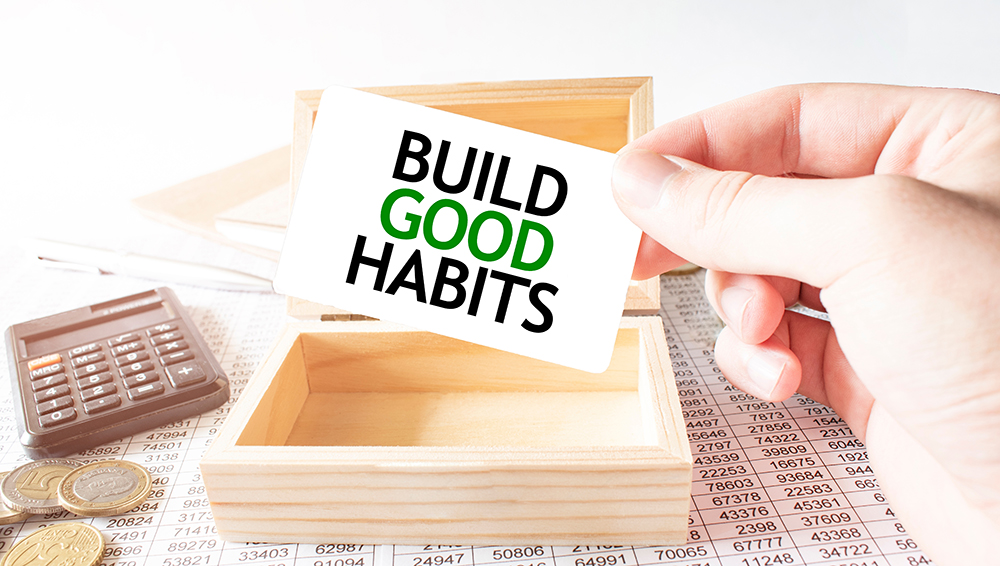
Your relationship with money may have its roots in your childhood. How your family handled their finances can affect your attitude toward spending and saving as an adult. Make sure you’re practicing good money habits like the ones below.
EXAMINE YOUR SPENDING HABITS
Buying small items impulsively can add up to a substantial amount over time. Write down every penny you spend for a few weeks. You can adjust your spending habits once you see where your money is going.
LIVE WITHIN YOUR INCOME
Paying with cash means you’ll be able to spend only as much money as you have on hand. If you use a credit card, make sure you can pay off the balance when the bill comes.
PAY YOURSELF
Treat your savings as a bill by putting money in your account every month before you spend it. As your income rises, increase the amount you’re saving.
FOLLOW A SPENDING PLAN
Build a monthly budget based on your income and expenses. Remember to account for items you pay yearly, such as insurance, HOA or property taxes.

